February 27, 2021
It says something that Newfoundland and Labrador had only three premiers in its first 40 years as a province in Canada … and no less than 11 more in just over three decades since.
The three longest terms in office belong to those first three premiers: Joseph R. Smallwood, Frank Moores and Brian Peckford.
Irish-bred photojournalist Paul Daly moved to Newfoundland and Labrador in 2000, after first visiting two years earlier. He quickly learned that politics here can be fascinating and rich material for photography.
He also learned that politicians in Newfoundland and Labrador come in different stripes, and not necessarily the political colours.
"With some politicians, you know exactly what they think," said Daly, pointing quickly to Danny Williams, who was premier for two often tumultuous terms.
"Williams wore his emotions on his sleeve. He didn't hold back — if he was angry, you knew it," Daly said. "But some premiers, you don't know where you stand."
Daly has included photographs of all the premiers he has had the opportunity to meet while working as a freelance photojournalist. Not included in this gallery are Smallwood (premier from 1949 to 1972), Moores (premier from 1972 to 1979) and Beaton Tulk, who was premier for the four months in 2001-2001 between Brian Tobin and Roger Grimes.
Brian Peckford
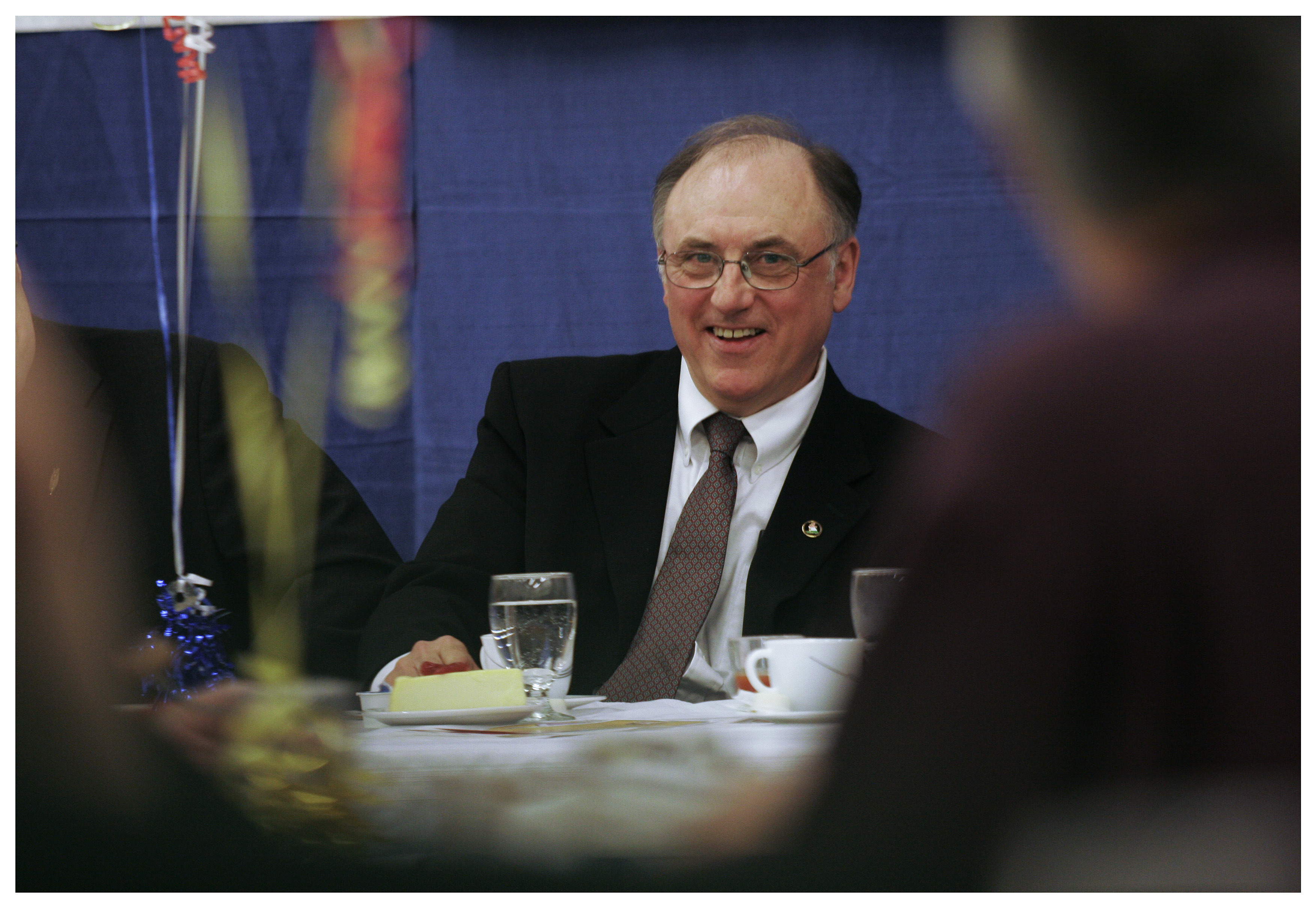
A teacher before finding his way into politics, Brian Peckford was a lively figure in Newfoundland and Labrador politics for a generation. He catapulted past more seasoned competitors to succeed Moores as premier in 1979, and took the Progressive Conservatives to solid victories in three consecutive elections. He championed development of oil resources, and negotiated the first Atlantic Accord with the federal government.
Dogged by some controversies, including the notorious Sprung greenhouse, he retired from politics in early 1989.
Daly photographed Peckford in Mount Pearl in January 2005.
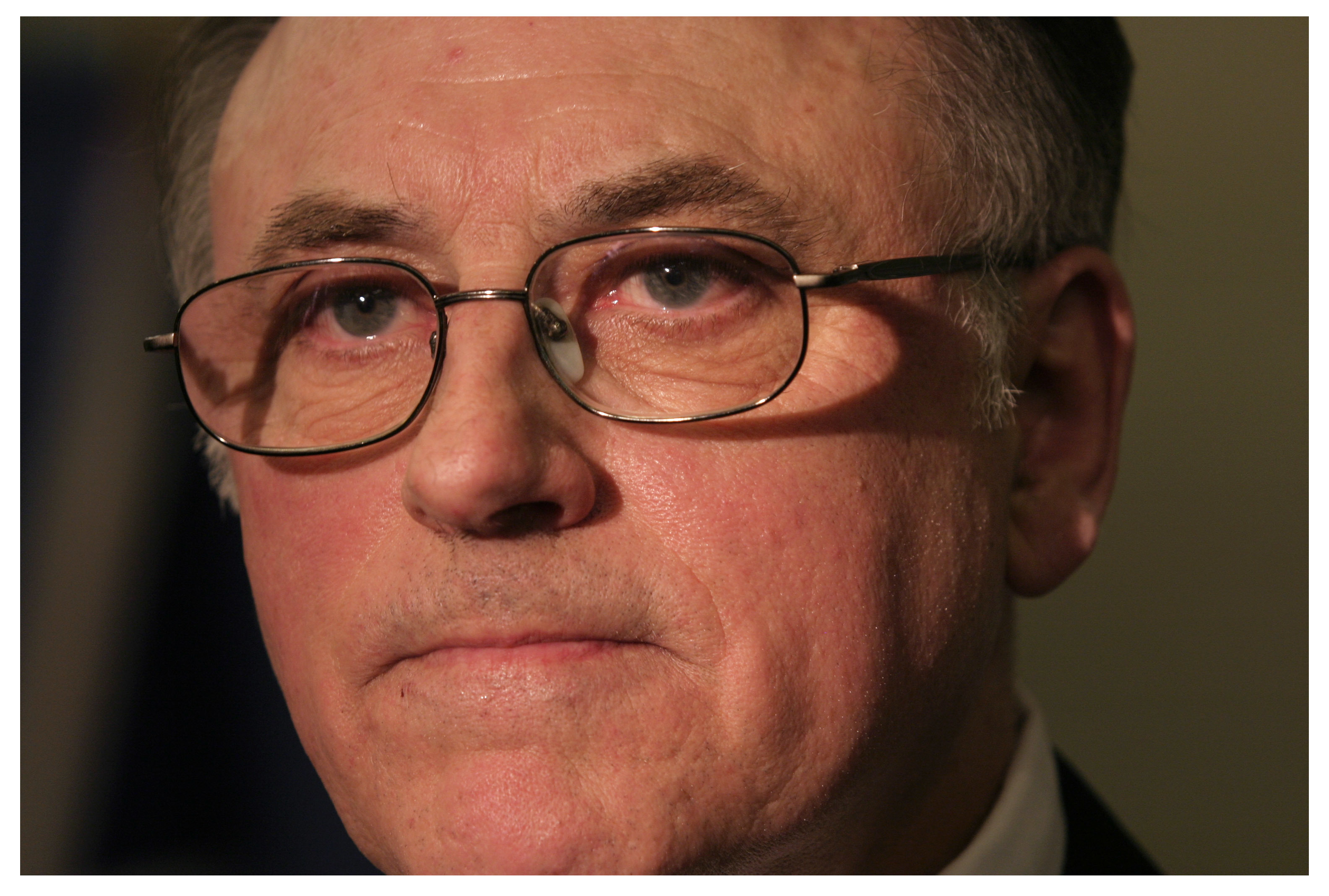
Tom Rideout
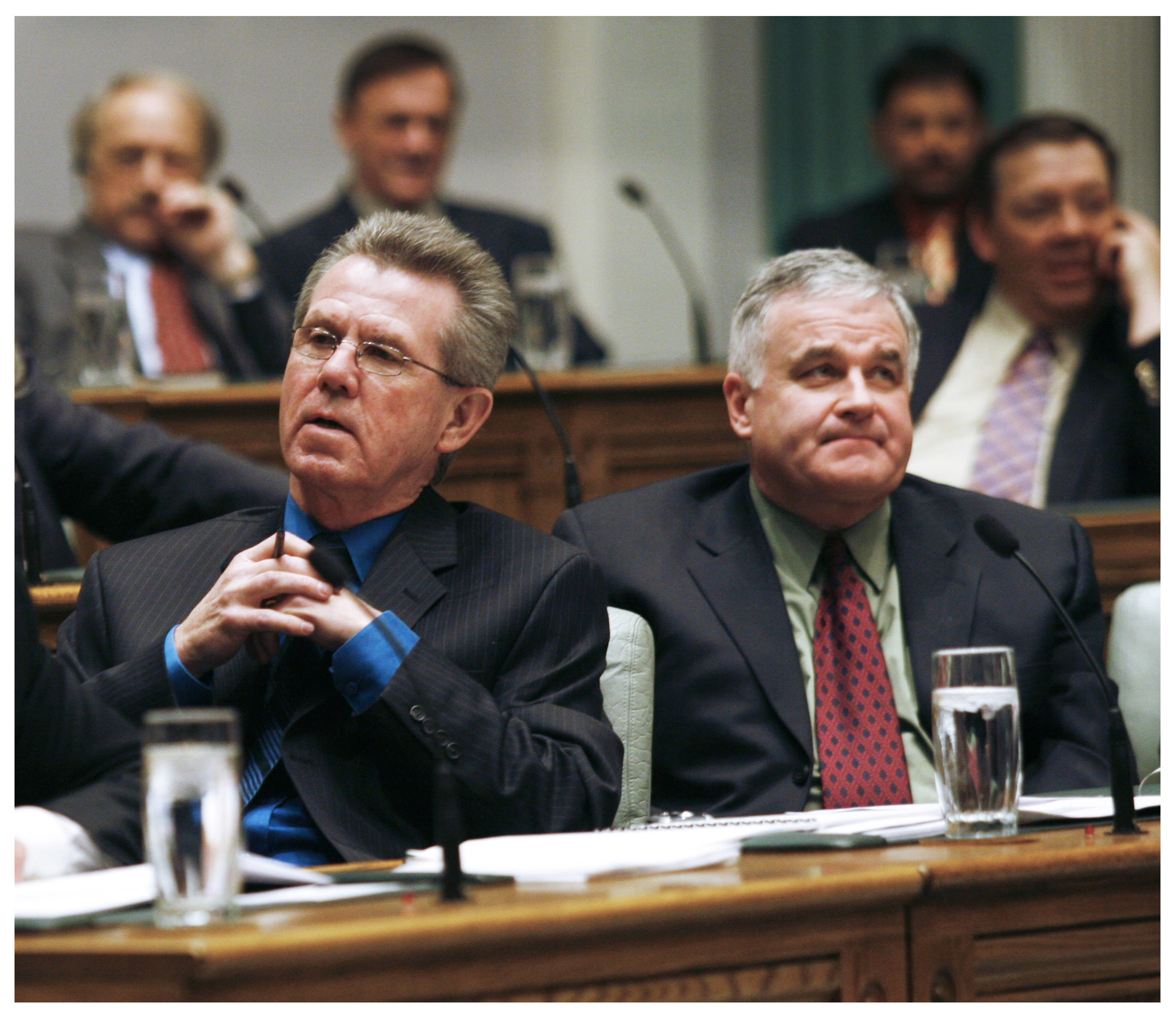
Tom Rideout succeeded Peckford as premier, after winning a heated race between five Tory cabinet ministers in 1989. His tenure as premier lasted just 44 days; sensing momentum after his party victory, he called a snap election — one that he lost to Clyde Wells and a resurgent Liberal party.
Rideout stayed as leader of the Opposition until 1991. He left politics, but not forever. After completing a law degree, he was elected again in 1999.
Daly shot this photograph in April 2007 in the House of Assembly, as Rideout listened to the speech from the throne.
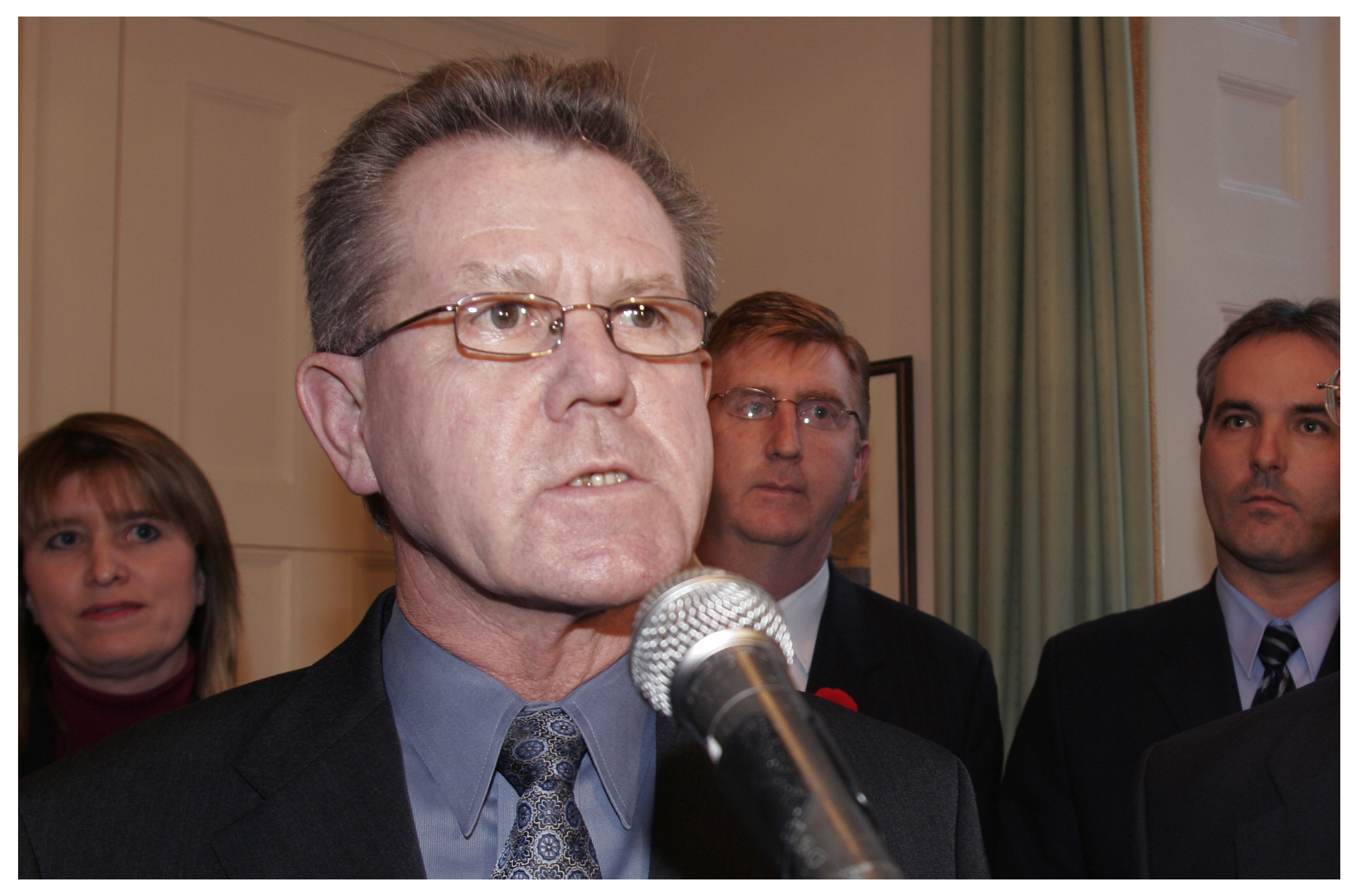
A former premier, Rideout brought political experience to Danny Williams's cabinet. Daly captured the photograph above in November 2005, after a cabinet shuffle in which Rideout was named deputy premier and the minister of fisheries.
Rideout and Williams would eventually fall out. In May 2008, he quit cabinet in a dispute involving spending in his district, and would resign his seat altogether a month later.
Clyde Wells
When he was still in his 20s, Clyde Wells was a minister in Joey Smallwood's cabinet. He quit on principle (he and John Crosbie were sharply critical of the financing of the Come By Chance refinery) and returned to private life, building a successful law practice in Corner Brook and later in St. John's.
He returned to politics, though, in 1987, to lead the Liberal party. He took them to victory in 1989, and won a solid majority again in 1993, even after a series of harsh budgets that reacted to a distressed economy and the collapsing fishery.
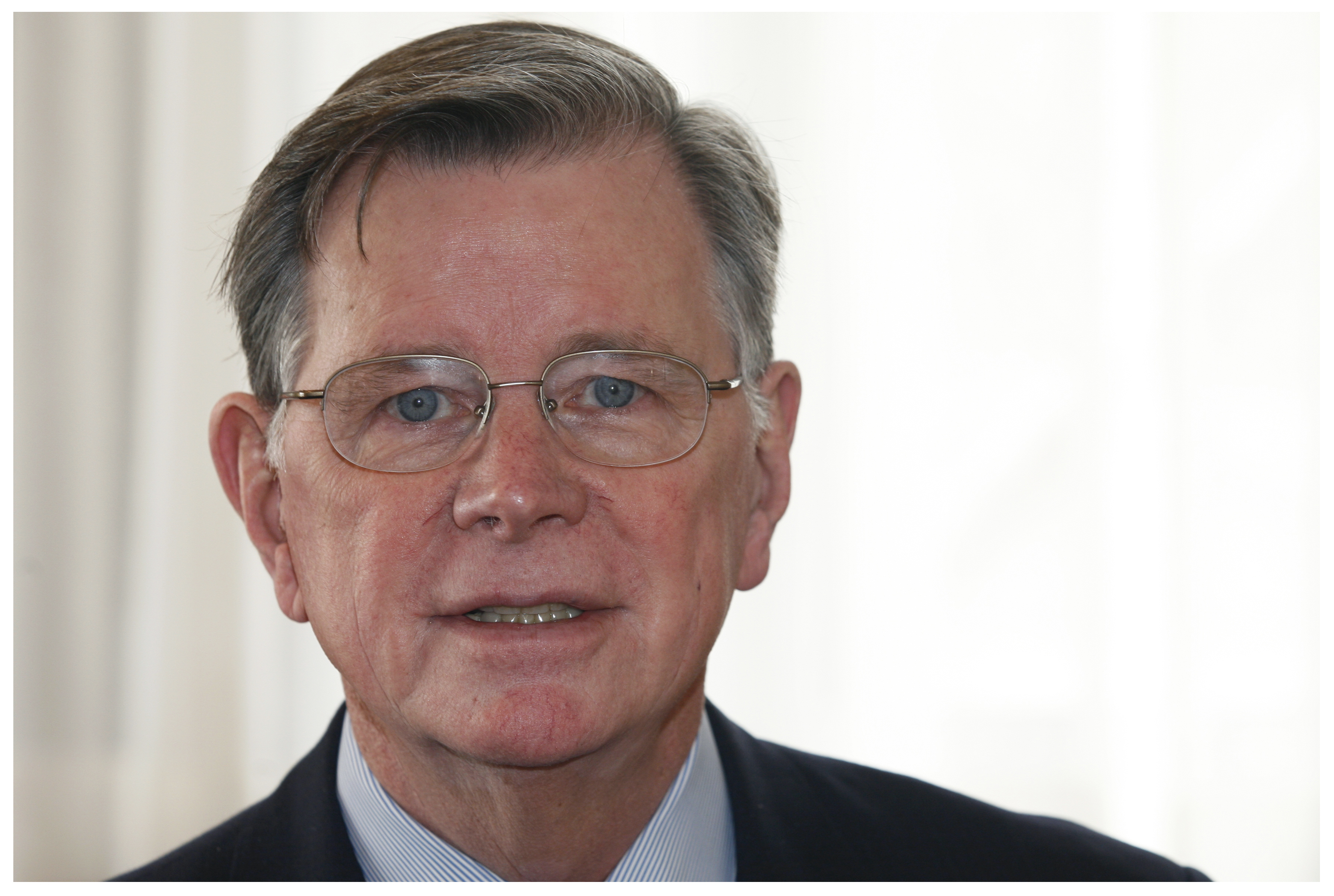
Wells retired as premier in early 1996. Three years later, he was appointed chief justice of the Newfoundland and Labrador Supreme Court of Appeal.
Paul Daly photographed Clyde Wells at his office in St John’s on May 3, 2007.
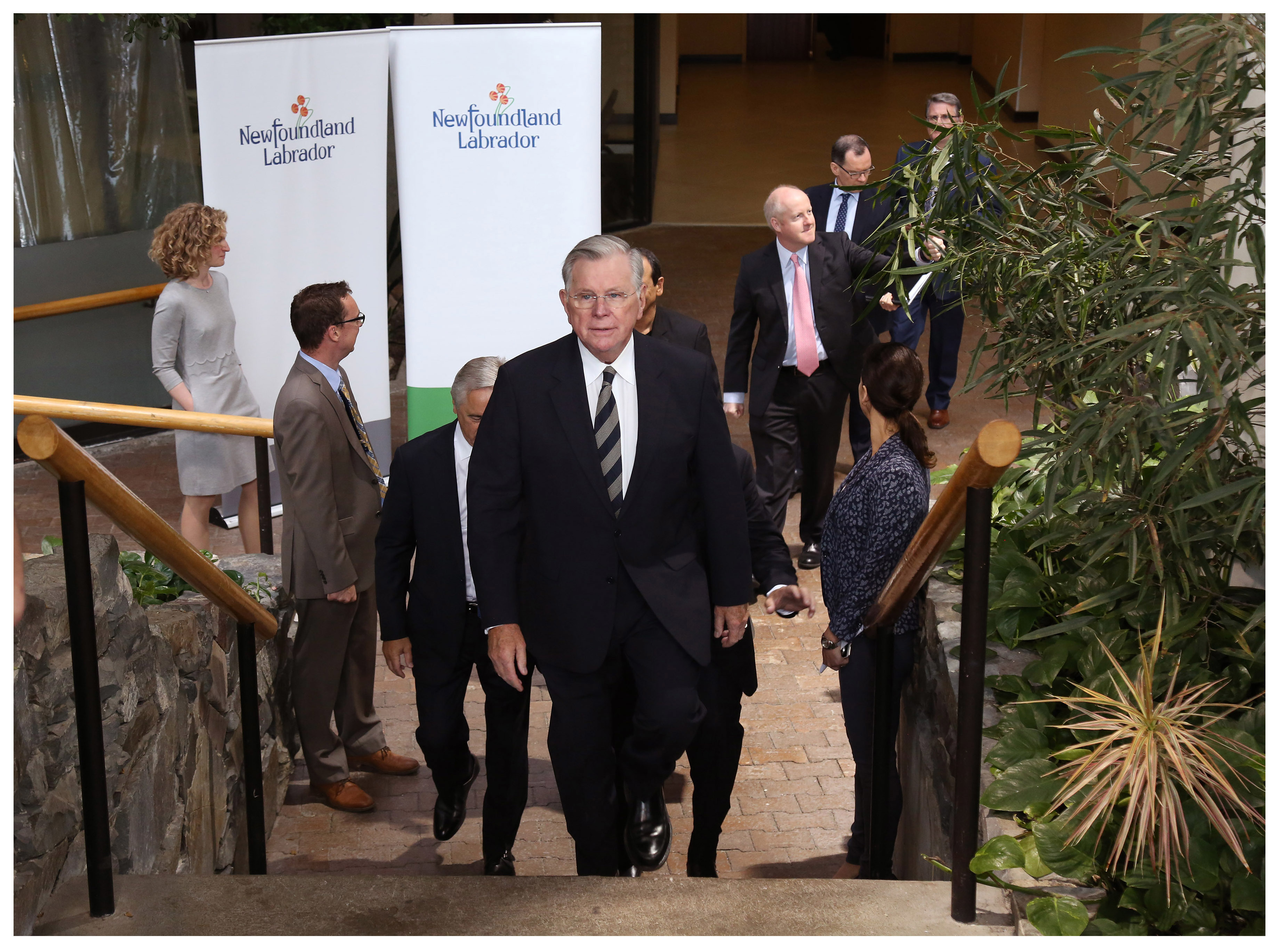
Wells retired from the bench in 2012.
In the photograph above, he is seen arriving at the Sheraton Hotel in St. John's, in June 2018, to hear the announcement that construction of the Voisey's Bay underground mine would proceed.
Brian Tobin
Brian Tobin was a bit of tornado in provincial politics. He quickly called a snap election after winning the uncontested race to succeed Clyde Wells as Liberal leader in 1996, and easily defeated Lynn Verge's Progressive Conservatives. Just three years later, he won another commanding electoral victory, with Ed Byrne leading the PCs.
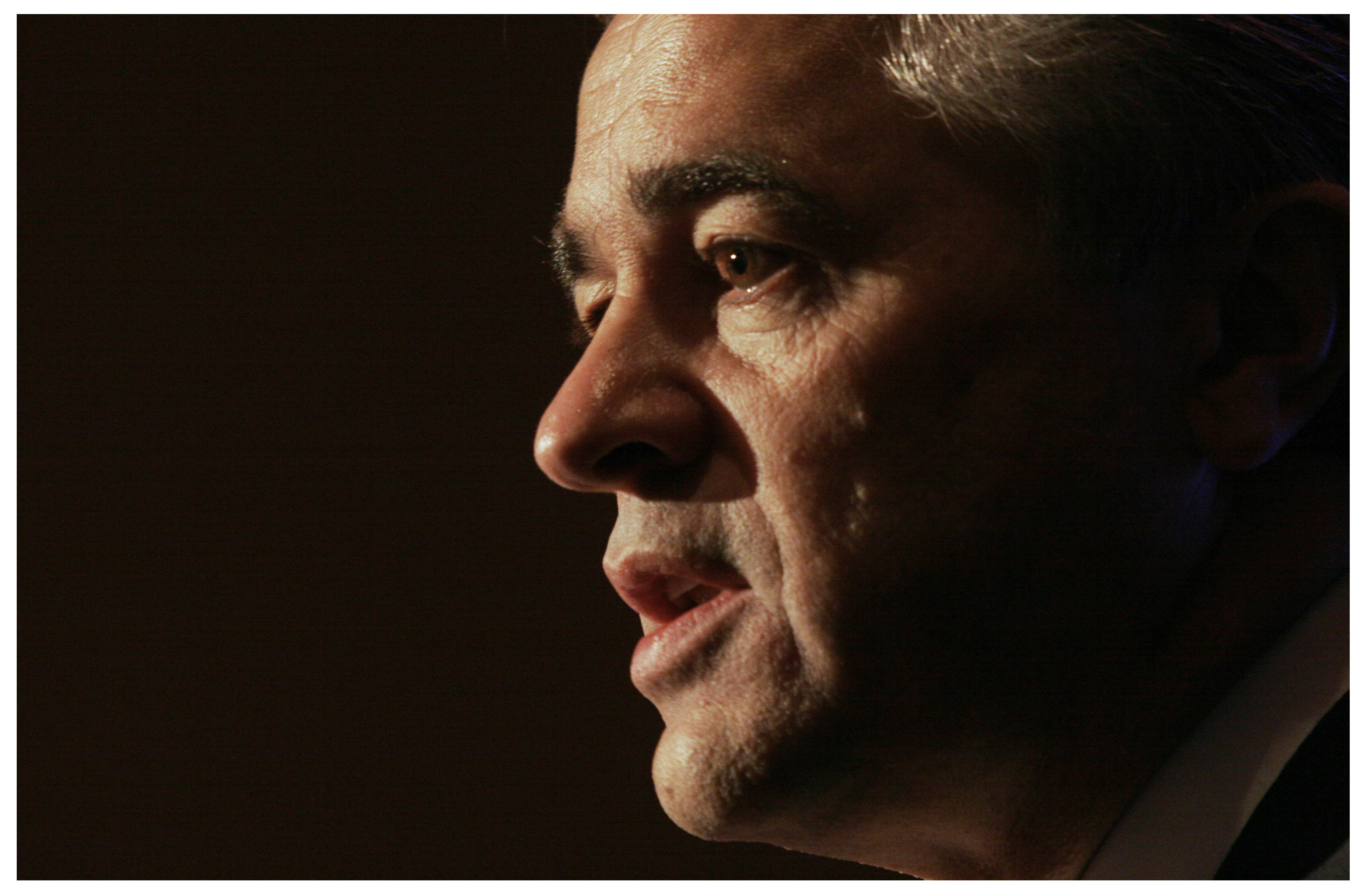
Tobin — seen in the photo above speaking to a 2005 conference organized by Memorial University business students — did not serve a full second term. He resigned as premier in October 2000, to run in a federal election.
Tobin had come to prominence as an MP in the 1980s, as a member of the scrappy Liberal "Rat Pack" that kept Brian Mulroney on his toes. Tobin's return to federal politics was widely seen as a preparation for a federal Liberal leadership bid. It did not last long, though. In early 2002, he quit the federal cabinet and his seat, in apparent frustration with the power of Paul Martin, the finance minister who would become prime minister the following year.
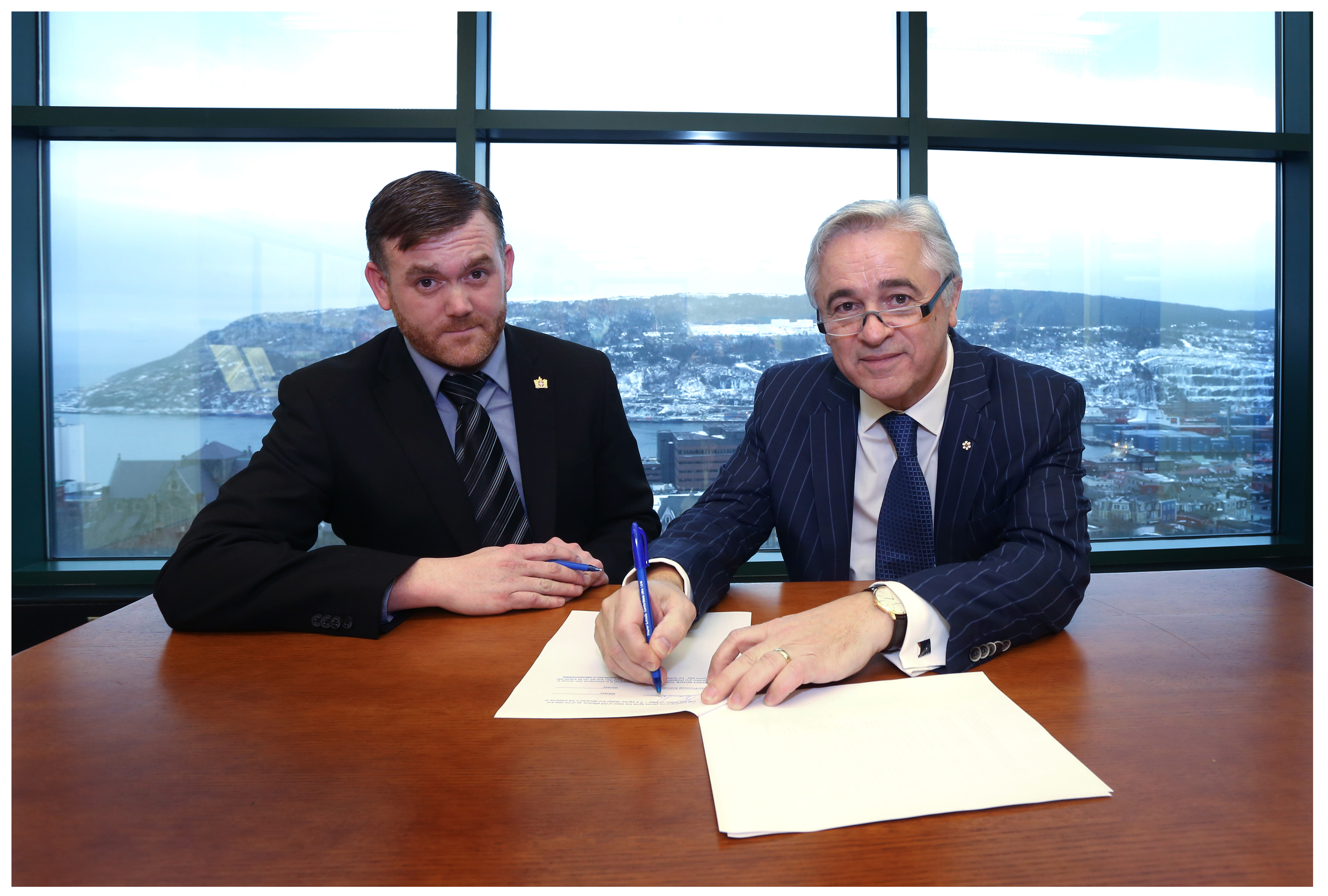
In February 2016, Tobin — who had moved into the business world after leaving politics; he became vice-chair of BMO Capital Markets in 2013 — presented his personal papers to the provincial archives at The Rooms. In the photo above, he sits with provincial archivist Greg Walsh.
Roger Grimes
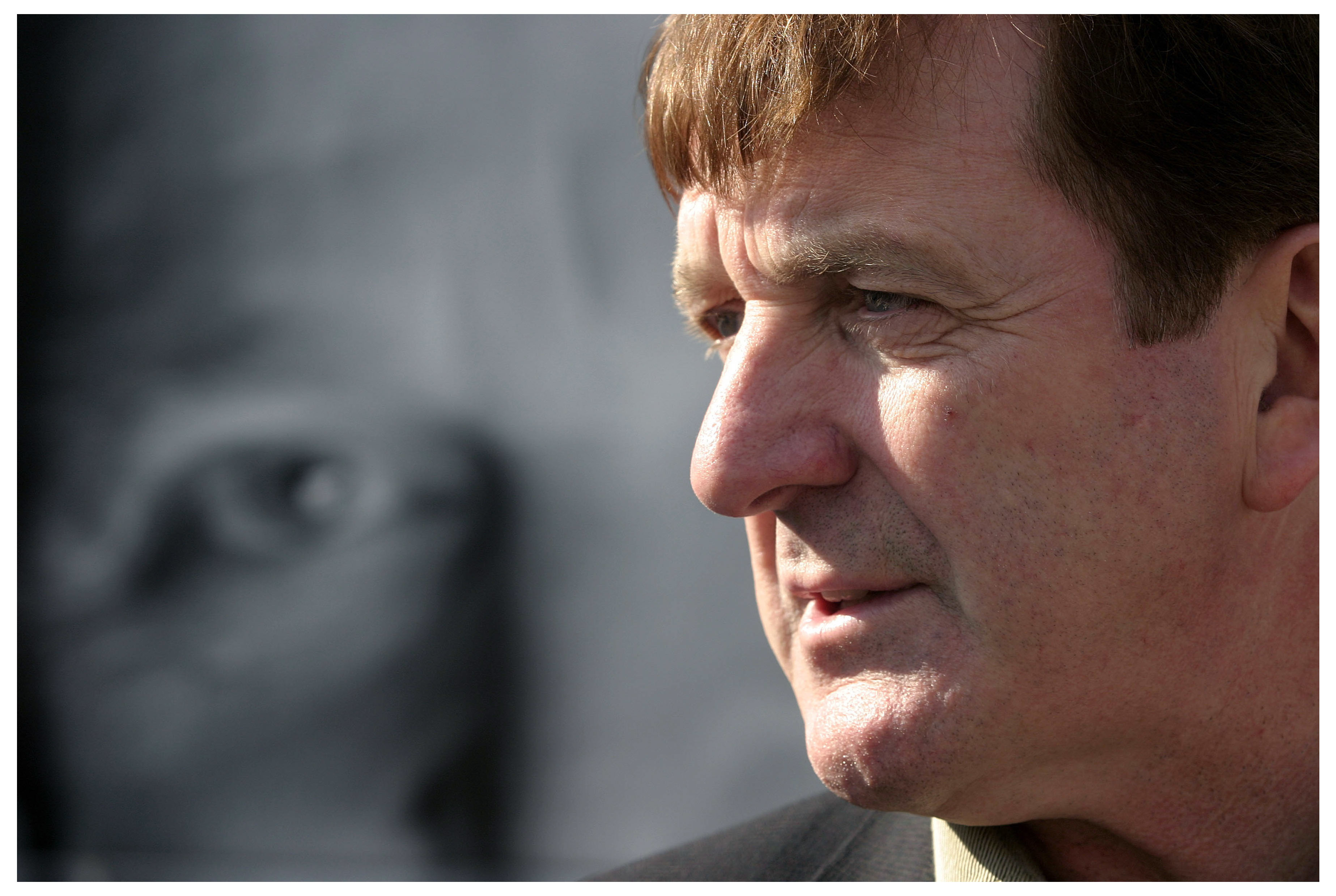
Roger Grimes — a teacher who became president of the provincial teachers' union — paid his dues before getting his chance to lead the government. He served in the cabinets of Clyde Wells and Brian Tobin before winning the Liberal leadership in early 2001. To get there, he had to win a ferocious race against John Efford and Paul Dicks.
He did not call a general election until late 2003. In the photo above, he takes questions from reporters during a stop on the campaign trail.
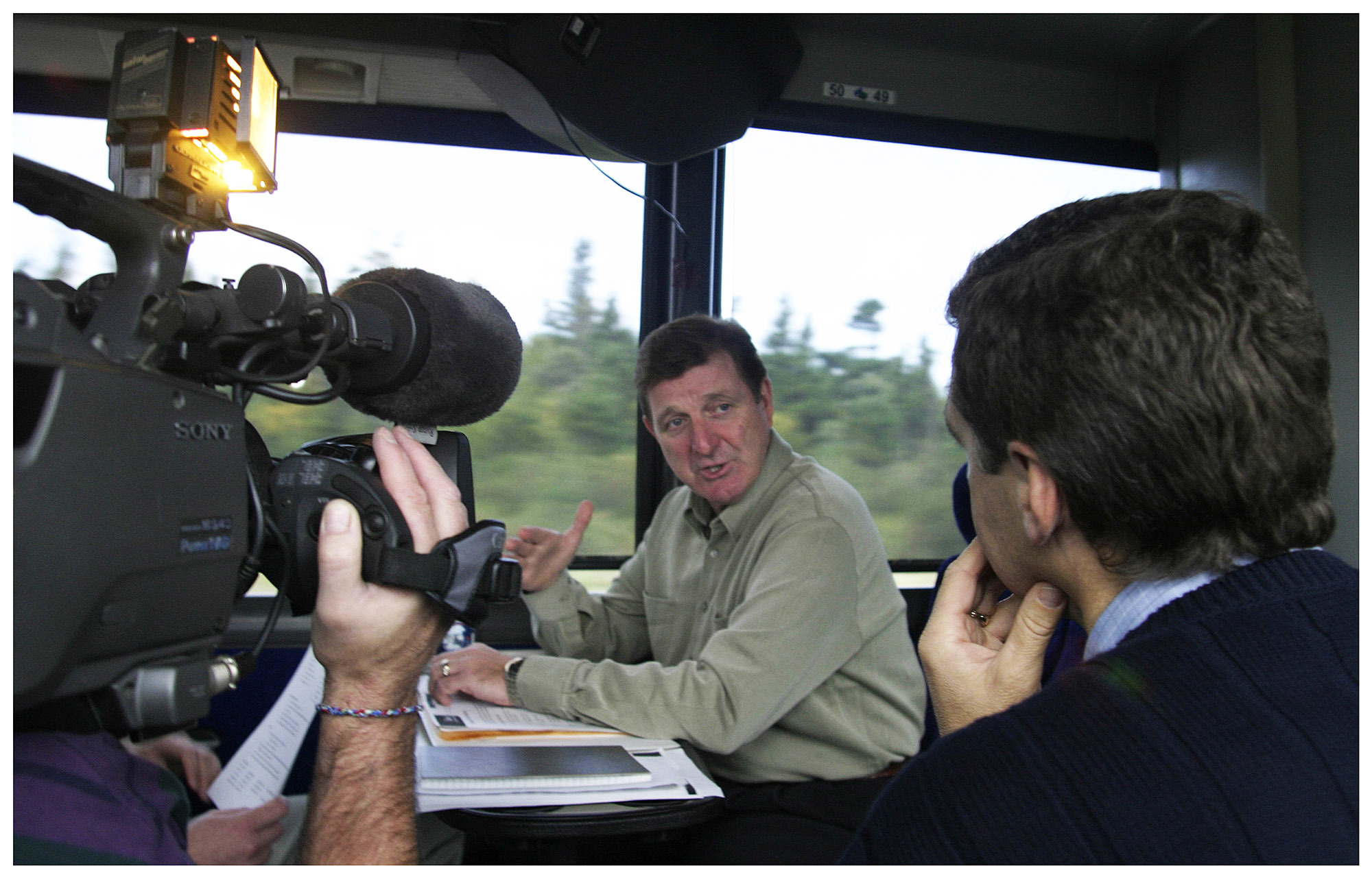
Grimes focused on mining, resources and an attempt to find a new deal with the federal government. He ordered the Royal Commission on Renewing and Strengthening Our Place in Canada, which called for a new fiscal deal as well as joint management of the fishery.
Grimes went into the campaign for the October 2003 election in an underdog position; the Liberals had lost a string of byelections to the Tories. Grimes later said he knew he would lose the election.
In the photo above, he speaks with a CBC news crew while travelling on his campaign bus.
Danny Williams
Danny Williams was a wildly successful businessman — he earned the nickname "Danny Millions" after he sold his interest in Cable Atlantic to Rogers Cable — and trial lawyer before he became leader of the Progressive Conservatives in 2001.
In 2003, the Tories ended 14 years of Liberal rule. Williams's two terms were filled with drama, some of it generated by Williams himself, who relished a political battle. He faced down unions during a bitter 2004 public-sector strike, and pressured the Paul Martin government in Ottawa to renegotiate the Atlantic Accord.
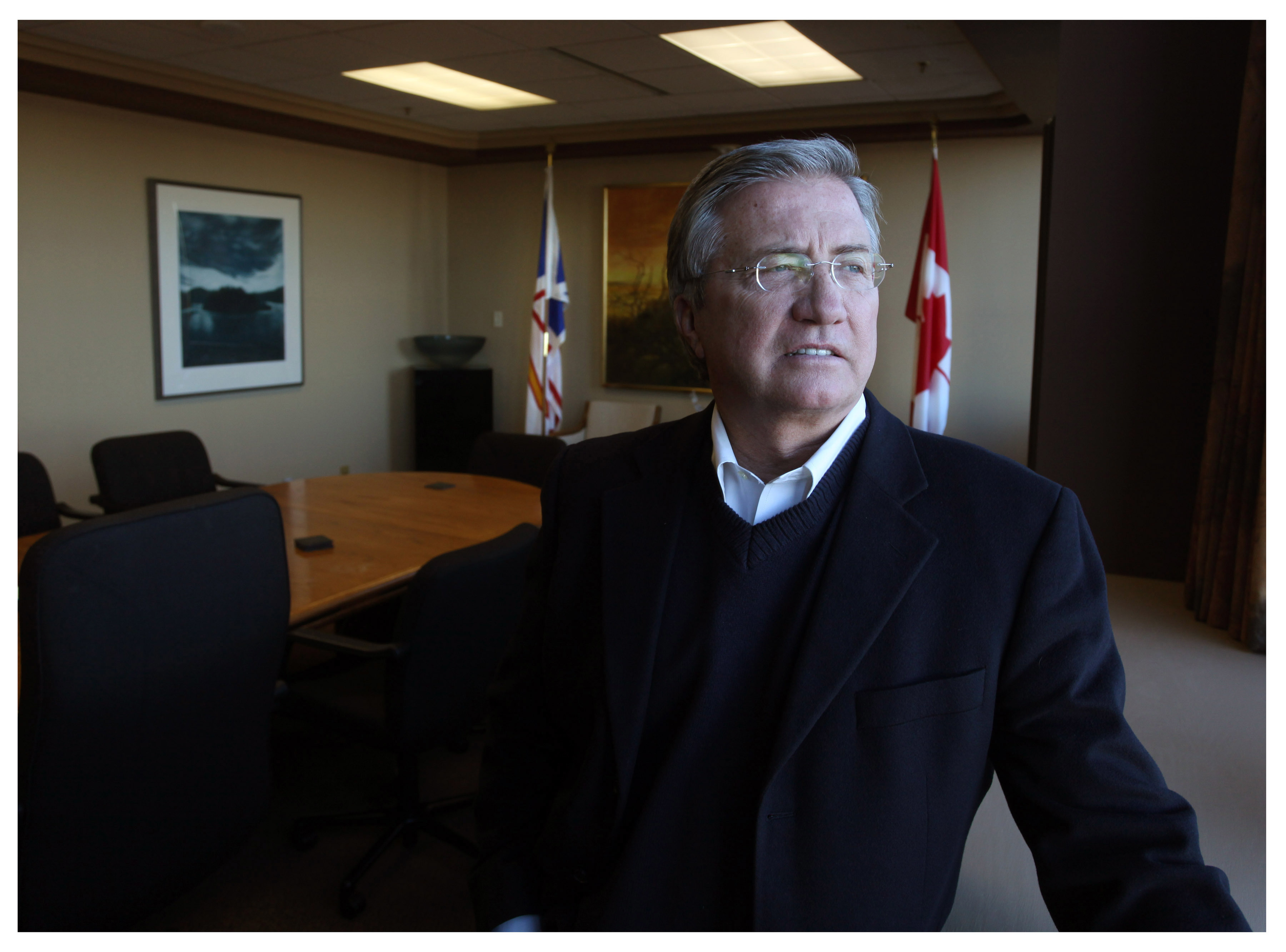
The photo of Williams above was taken in his office at the Confederation Building in St. John's, on Nov. 26, 2010, one day after he announcing his plans to step down as premier. A week before that, he announced the Muskrat Falls hydroelectric megaproject, which would turn out to be a boondoggle that would affect his reputation long after he left office.
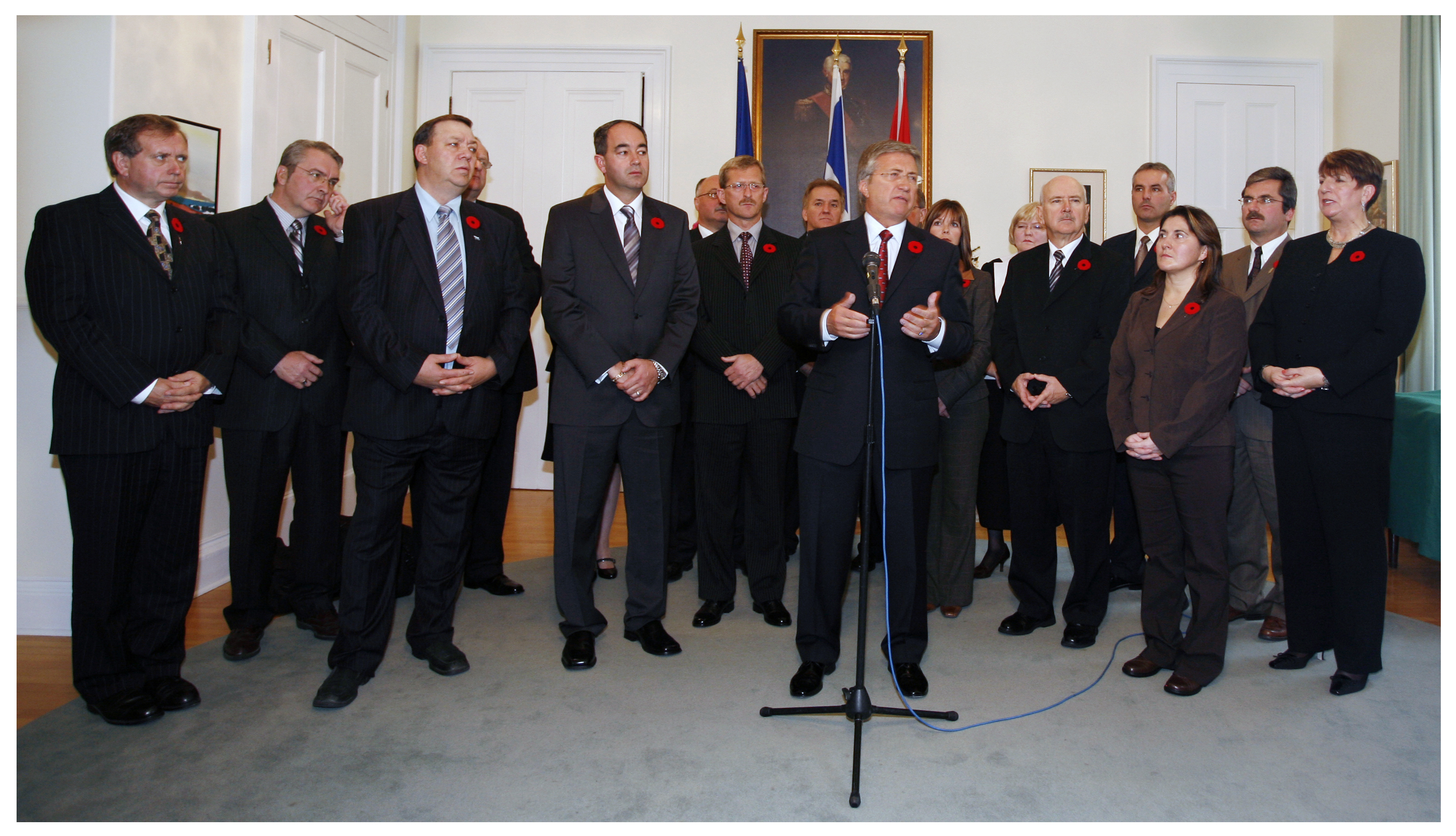
Williams was a commanding presence in the PCs and enjoyed fairly high approval ratings through most of his tenure as premier. In the above photo, he poses with his cabinet in October 2007, after winning a second majority government.
Kathy Dunderdale
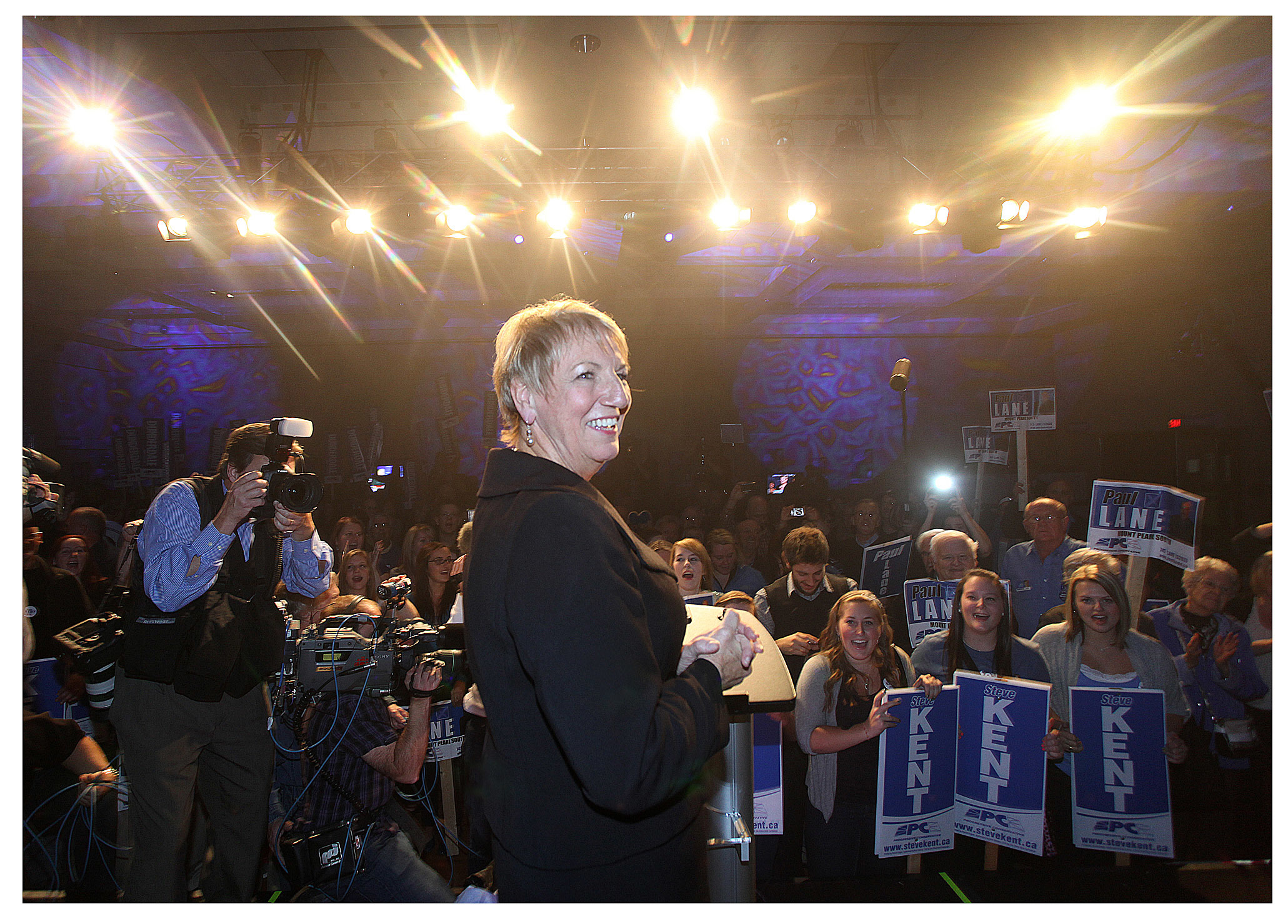
Kathy Dunderdale made history on Oct. 11, 2011, by becoming the first woman to lead a party to victory in a Newfoundland and Labrador election.
Dunderdale had become Newfoundland and Labrador's 10th premier in December 2010, after Williams retired. First elected to the legislature in 2003, she was one of the top ministers in the Williams cabinet, notably serving as natural resources minister during the offshore oil boom of the 2000s.
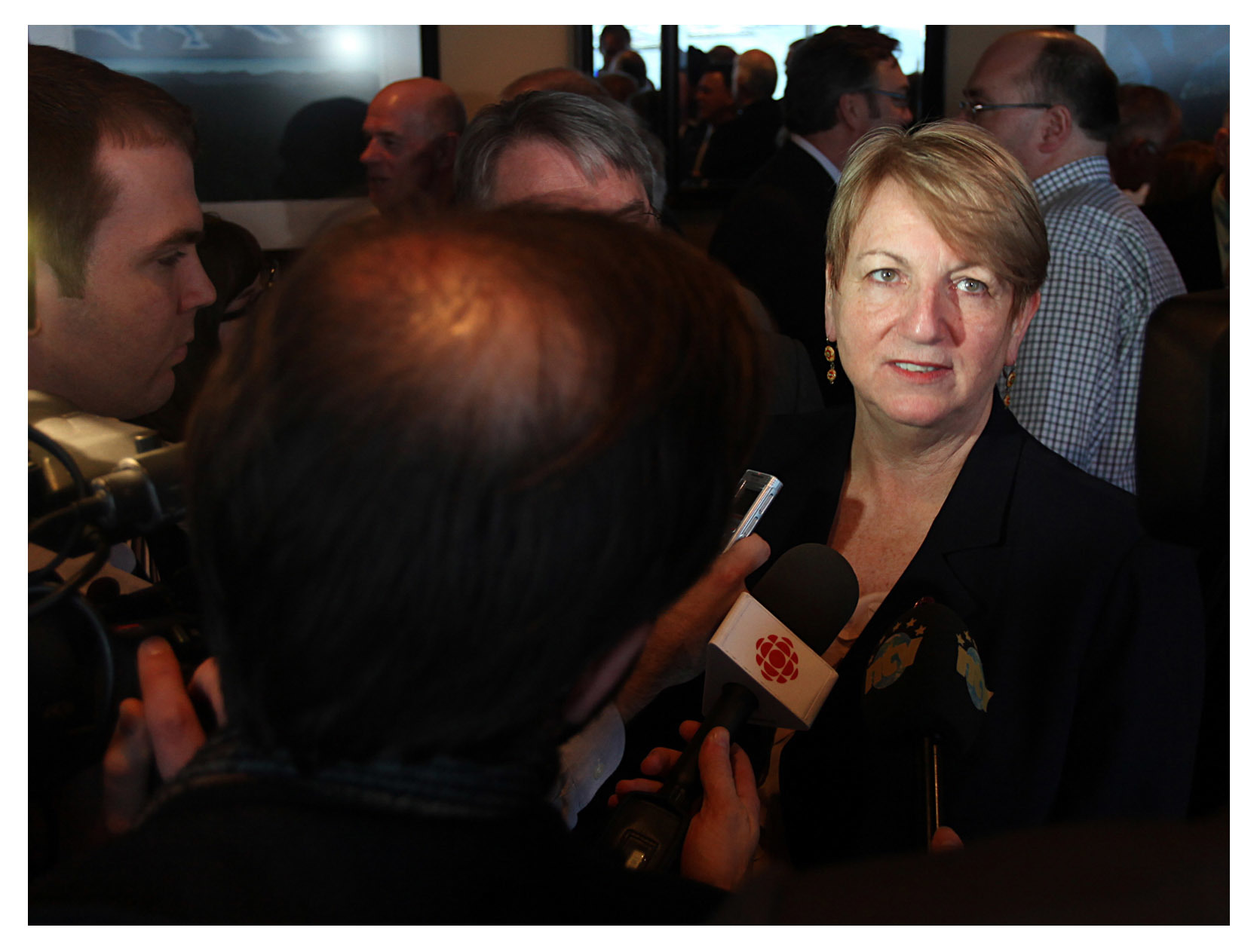
Dunderdale — seen above at a reception in St. John's in February 2011 — did not serve a full term. As premier, her government sanctioned the Muskrat Falls project.
But in January 2014, amid apparent tensions within the Progressive Conservative caucus, Dunderdale stepped down as premier and, shortly thereafter, as MHA.
Tom Marshall
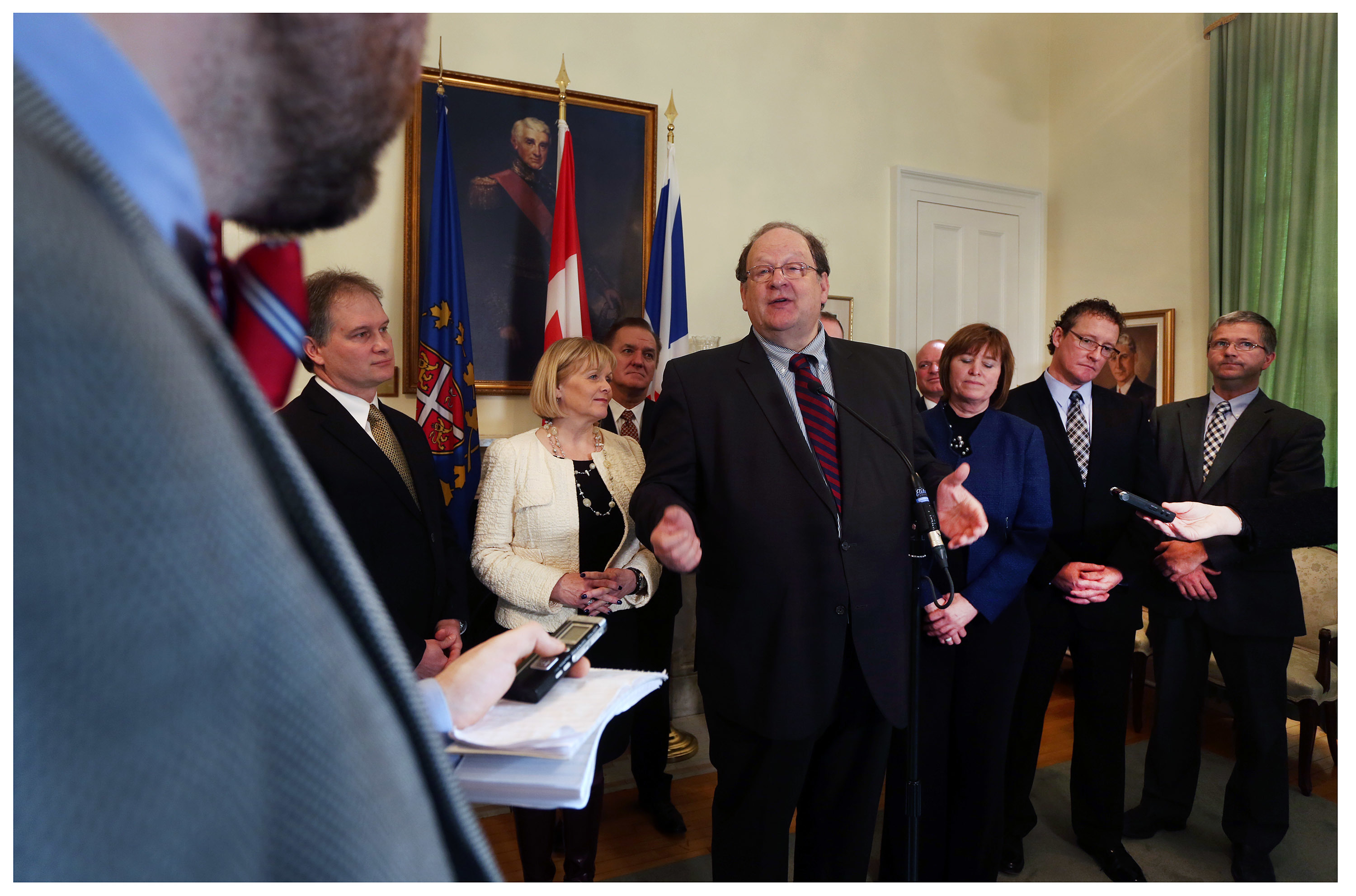
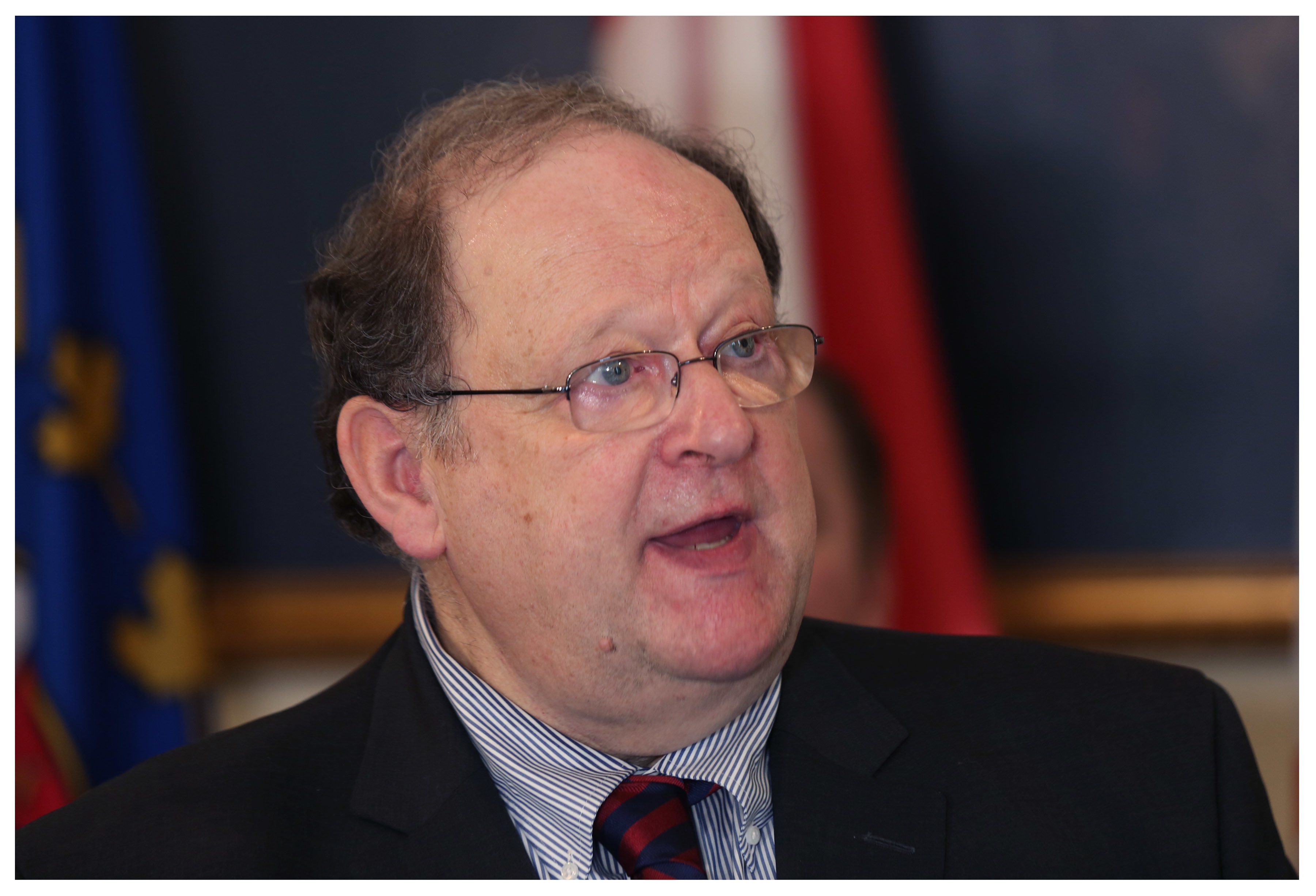
Tom Marshall was sworn in as the 11th premier of Newfoundland and Labrador on Jan. 24, 2014.
Marshall, a lawyer from Corner Brook, took the reins of government in part because had no aspirations for the leadership race that would need to be called.
Marshall was respected by all sides in the House of Assembly. He held several portfolios in the Williams and Dunderdale governments, particularly finance and treasury board. His term as premier ended in October 2014.
Paul Davis
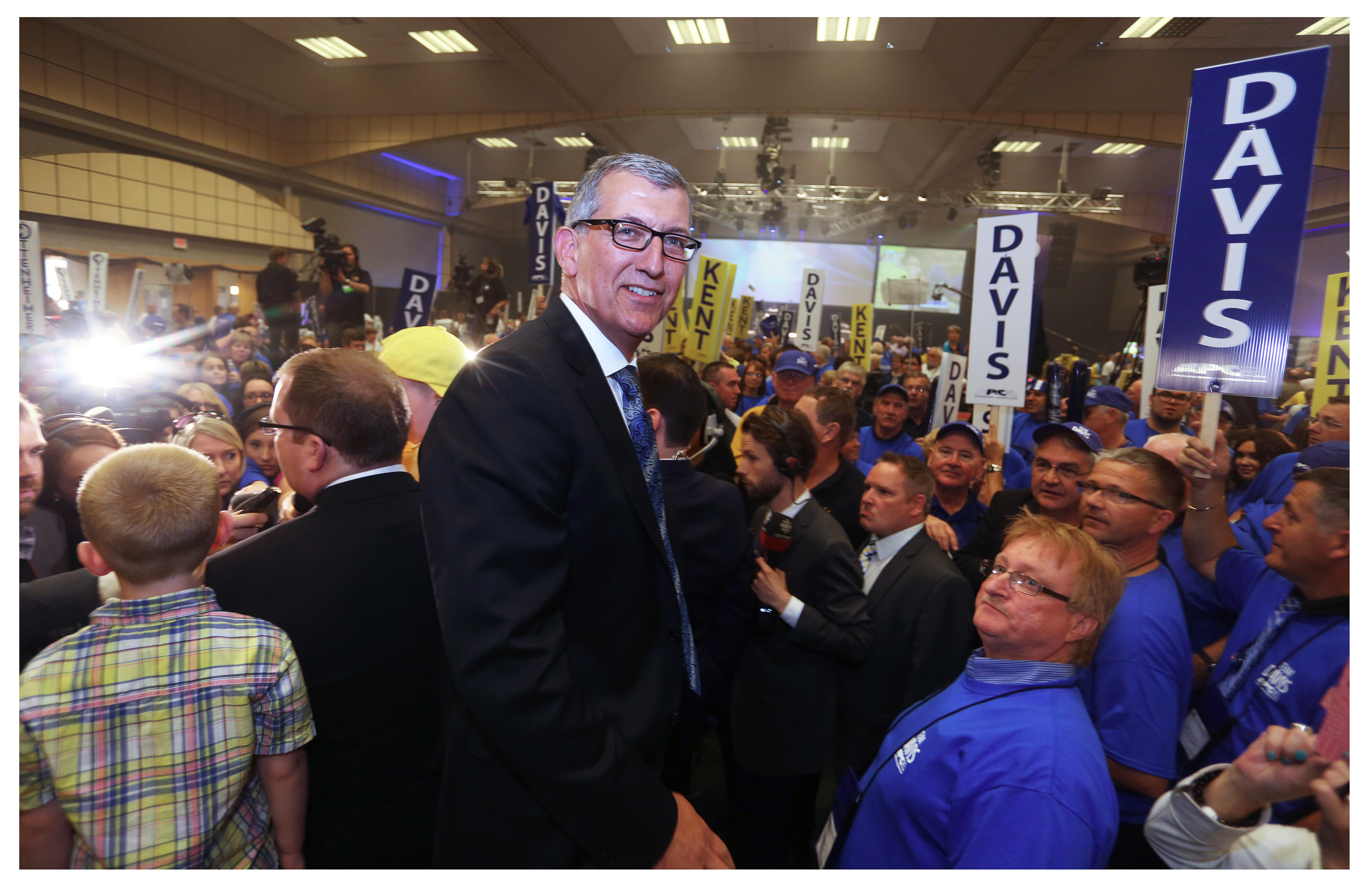
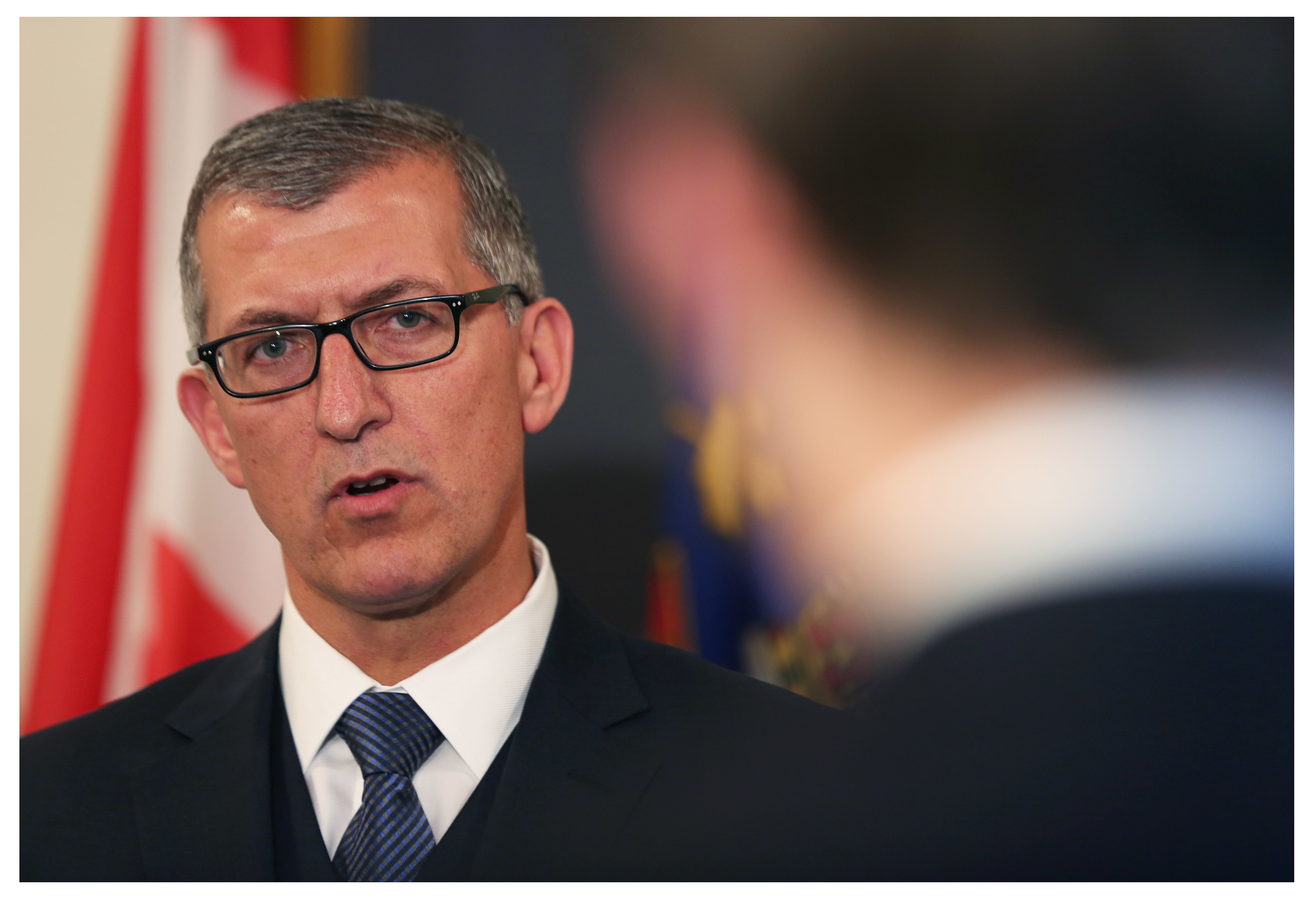
Paul Davis had a unique path to politics: he was a police officer. As the media relations officer for the Royal Newfoundland Constabulary for years, he was well known in Newfoundland and Labrador long before he moved into politics. He won a byelection in the district of Topsail in 2010, and served in the Kathy Dunderdale government.
In 2014, after Corner Brook businessman Frank Coleman quit the PC leadership race in which he had become the sole contestant, Davis saw an opportunity to lead. He defeated Steve Kent and John Ottenheimer to become PC leader, and thus premier. He led the province for more than a year.
Dwight Ball
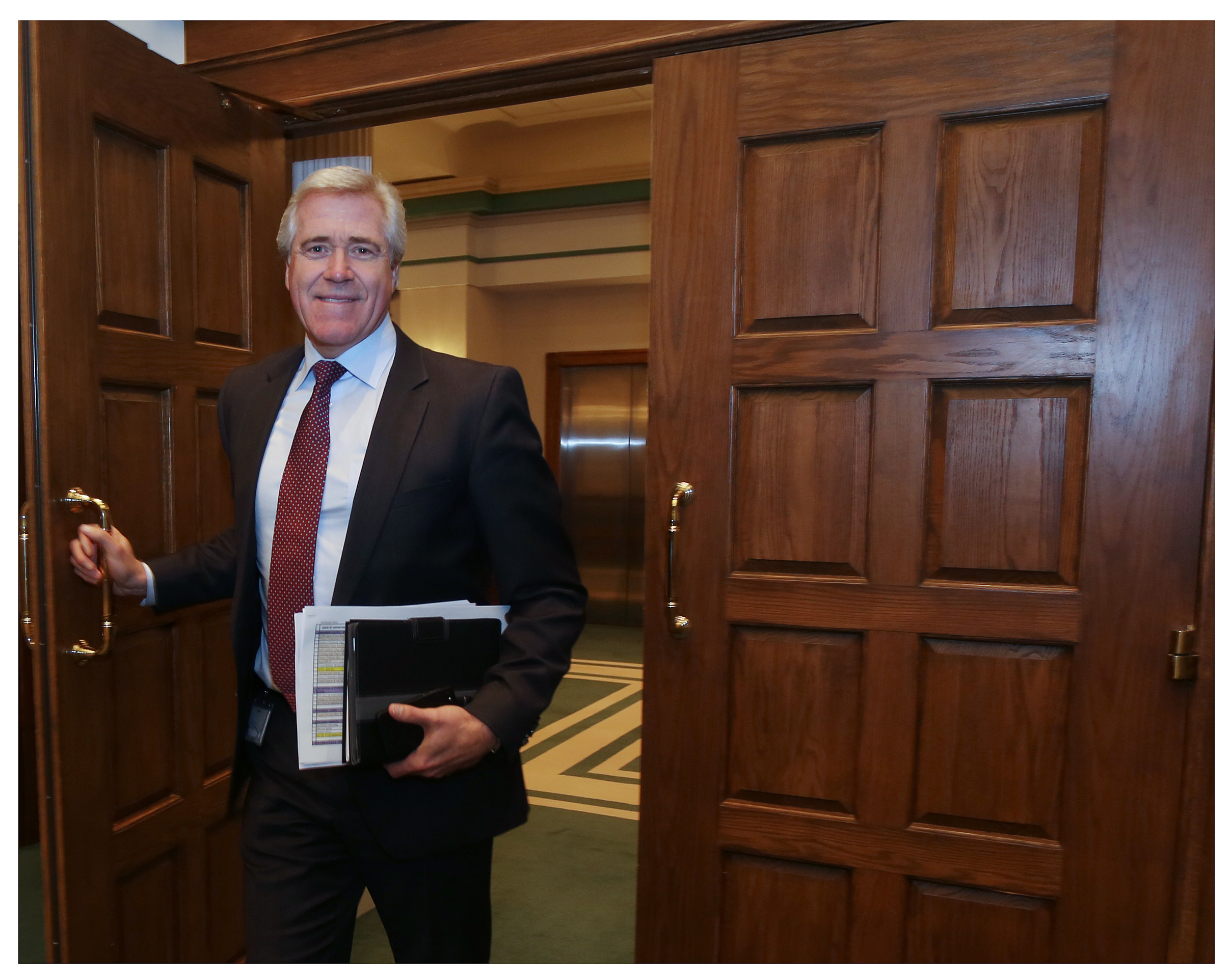
Dwight Ball became the second Liberal to lead his party to victory over an incumbent Tory government. A pharmacist and businessman in Deer Lake, Ball had long been involved in Liberal politics, especially on the west coast.
He had a rocky start to his political career. He won a 2007 byelection in Humber Valley, but lost the seat months later in an election that saw the Danny Williams Tories dominate the returns. Ball made a comeback in the October 2011 election, and weeks later became interim leader. He won a competitive leadership race in 2013, and took the party to victory in 2015.
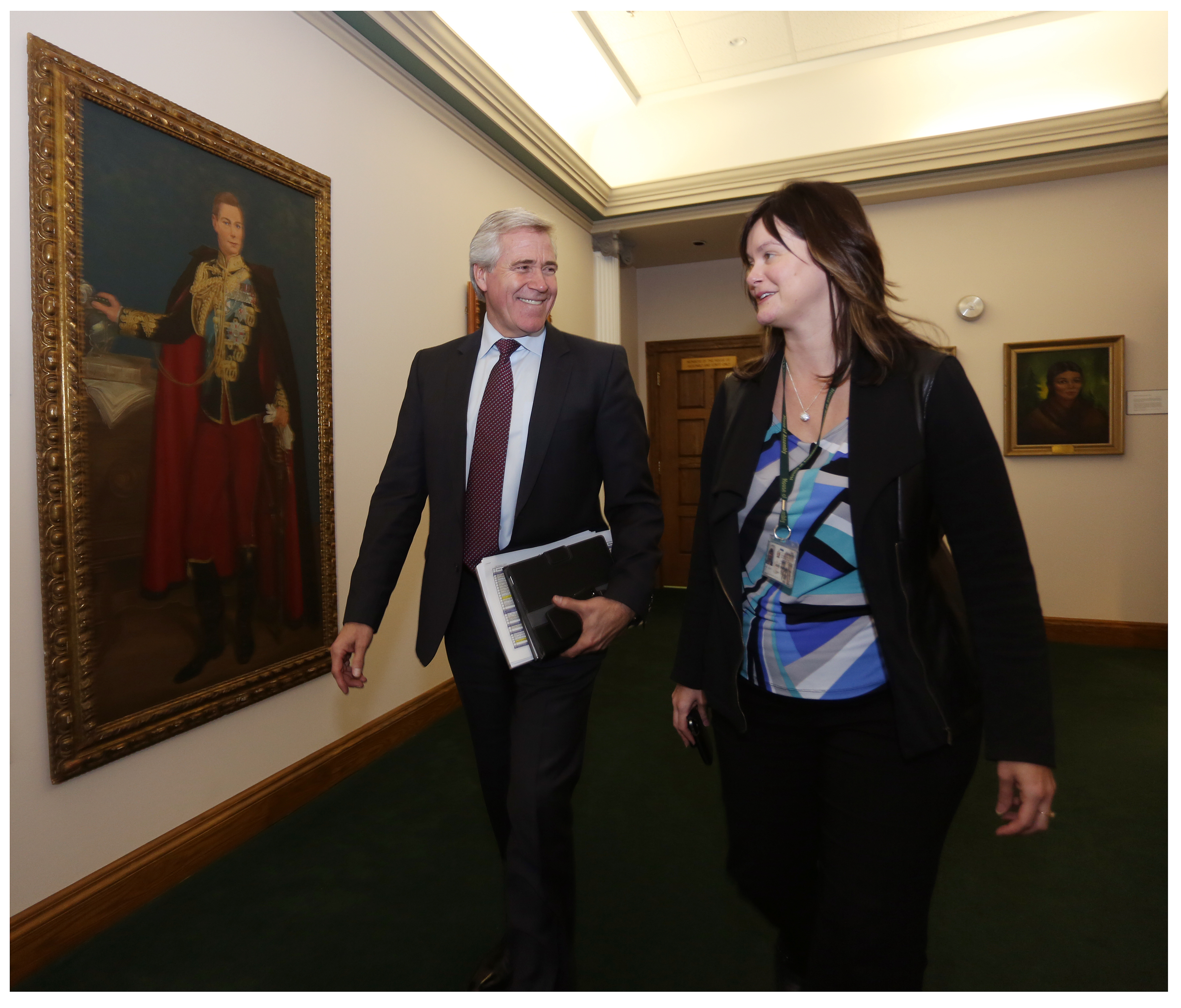
Ball had numerous challenges as premier: a slump in oil prices, escalating costs of the Muskrat Falls project, a weakening economy and a runaway deficit among them. Ball is seen above at Confederation Building with former key staffer Carla Foote, whose appointment to a job at The Rooms was decried as patronage. Then came allegations of harassment and bullying that rocked his own caucus.
All of it had Ball on his back heels heading into the 2019 election. Ball won the election, but with a minority government. In 2020, he decided to step down, although the coronavirus outbreak delayed his plans to retire from public life.
Andrew Furey
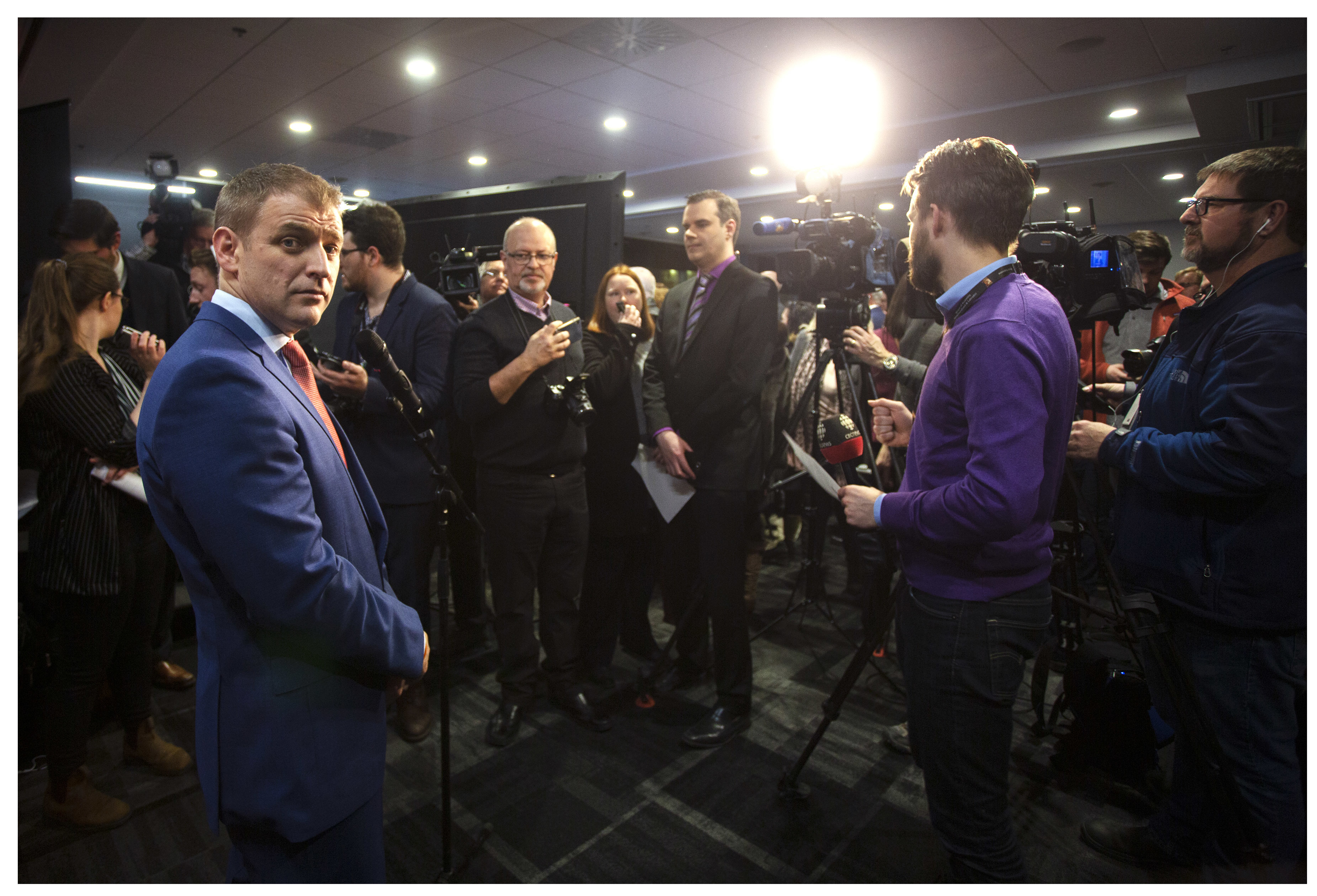
Andrew Furey, seen in the photo above preparing to talk to journalists while announcing his bid in February 2020 to become premier, became premier six months later.
COVID-19 has been a defining factor in his premiership to date. The leadership race that he eventually won was delayed because of the disease, and the government's plans, finances and agenda have been upended.
In January, Furey called an election for Feb. 13, citing what was then a low rate of infection. Less than a week before the election was to have concluded, an outbreak in metro St. John's threw the election itself into upheaval.
